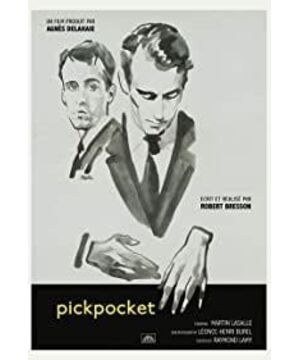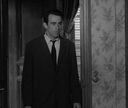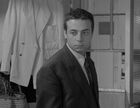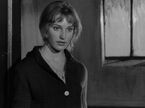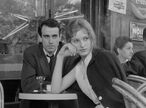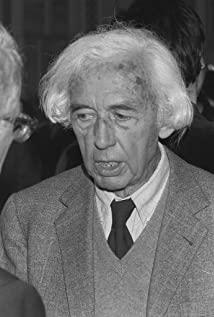"Pickpocket" is Bresson's work in 1959. It is said that as soon as it was released, it was praised by the critics as his greatest masterpiece. In fact, 1959 is still an important year for French cinema. In addition to maintaining the standard of his works with a critical and demanding attitude like Bresson for a century, another work on the streets of Paris is also in rapid photography, very casual and very personal. This is the later intellectual, Jean-luc Godard's "Breathless", which was worshipped by countless film youths. This film also opened the prelude to the new wave of French films.
The pickpocket is certainly not Bresson’s best film language in terms of film language, or it should be said that in my personal opinion, Bresson did not use too many lens language skills in this film. For example, in "Maybe "In the Devil" uses a supernatural incomplete composition to imply the space outside the lens, the lack of synchronization between the dialogue sound and the image, and the sense of layering in the long shot. In Pickpocket, Bresson uses a large number of images in a small indoor space to express the protagonist’s marginal life, a large number of rapid cut series and information redundancy to attract the audience’s attention and preferences, or to make the audience feel immersed. This kind of extraordinary sense of immersion in the life of pickpockets has a strong contrast with our usual life. It may be called abnormal substitution. The audience unconsciously begins to take on the role of pickpockets, and is held back by every action during the theft. Breathing, along with it, is also a question that Bresson wants to think about, morality and freedom, social groupness and personal will, and the existing system cannot be reconciled.
From a vertical perspective, Pickpocket is the closest to the diary of a country pastor. It is a self-narrative narrative with a straw for salvation in solitude. The difference is that the pastor who was tortured by stomach cancer has grasped the straw. What he needs is persistence, and the pickpocket It was at the end that it suddenly became clear how difficult and dramatic it was to recover the straw. From a horizontal comparison, it is easy to think of Jia Zhangke’s "Xiao Wu", which is also a thief with culture and conviction. The difference is that Xiao Wu in Jia’s eyes is mostly an outsider in the changes of Chinese society and the product of social external factors. , And Bresson’s thief is even more spontaneous. He is more like the protagonist of Dostoevsky’s "Crime and Punishment". He lives in a shabby room with the book. He admires Nietzsche’s superhuman will and believes in stealing. To solve the different behaviors of social distribution, he set up fascination and stealing itself, studying the techniques of stealing. He is not a product of the times, but an anomaly in the system.
The best part of the film is a series of scenes of the protagonist Michell and the other two accomplices committing crimes collectively at the train station. Although there is no stunt, it is the most elaborate and beautiful scene of theft that I have seen. It is called fingertip ballet by later generations. After reading this, you will understand how fake and rough the theft scenes in "A World Without Thieves" are. The legends of the thieves and thieves in Hong Kong and Taiwan movies are nothing more than bluffing pediatrics. Bresson must have studied a lot of practical stealing techniques, and the route of the moving camera is very well designed. The actions under the original appearance are all broken down and connected together, making them extremely smooth. That's true. Bresson’s movies can only be Bresson’s.
In a book I read a few days ago, it was mentioned that the Cannes Film Festival in 1983, the pinnacle works of Bresson and the Old Tower, "Money" and "Homesickness" were only tied for the Fabisci Award at the film festival. The author thinks "Money" is good, but it is too pessimistic, and the last part of "Homesickness" where the Russian writer guards the hot spring by candlelight is very warm. In fact, Bresson also has such a sentimental stroke. At the end of Pickpocket, the scene of the thief and the girl snuggling through the bars is very poetic and gratifying. Michell’s last sentence "What a path I took to go back to you" is extremely sensational, in the background music. A large amount of emotion accumulated by the viewer is freely vented at this moment. It is similar to the release of the protagonist in "Prison Break" when he escaped from the Nazi prison at the last moment.
View more about Pickpocket reviews


